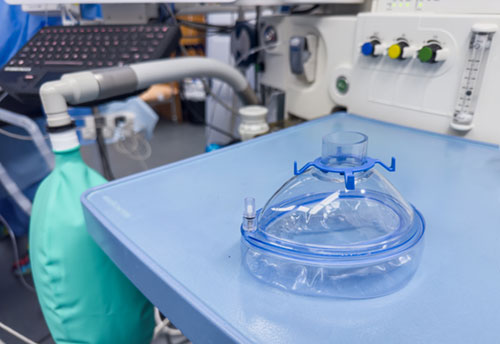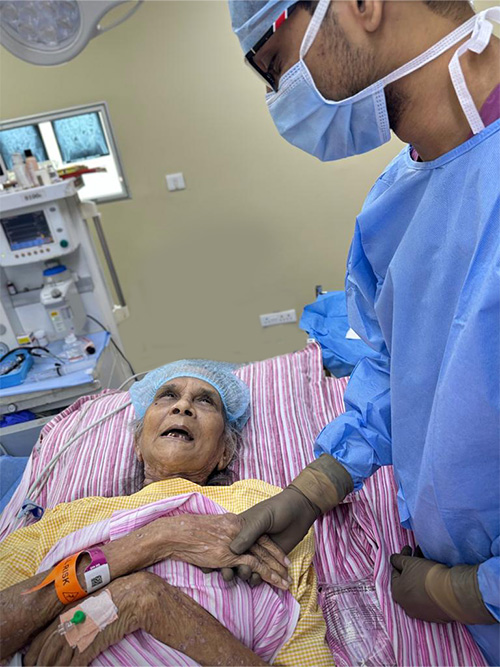Aging is inevitable, being fit physically and mentally gives a better outcome for a healthy longevity. Evolution in health care has resulted in an increase in the geriatric population opting for surgeries and other procedures. For an anaesthesiologist, geriatric concerns are cardinal to handling a newborn. Geriatric care refers to medical care for a person who is over 60 years of age. Anaesthesia is a medical practice that involves administering drugs to induce a temporary loss of sensation, consciousness, and sometimes muscle movement during surgeries or medical procedures. While anaesthesia is generally safe, there are unique concerns when it comes to administering anaesthesia to geriatric patients, who are typically individuals aged 65 and older. This is because aging can bring about various changes in the body that may impact how anaesthesia is administered and how the patient responds to it. Here, we’ll explain some of the geriatric concerns in an easy-to-understand way.

Classification
*WHO Classification of the Elderly individuals:
- Elderly: 60 to 75 years
- Old: 76 to 90 years
- Very Old: Above 91 years
Overall Health Status:
How can we assess a patient’s age? It can be chronological i.e., based on their age in years; biological according to the changes in the body due to their comorbidities; psychological age based on their mental health status.
As medical professionals, how we categorise their functional capacity, is by knowing whether they function self-sufficiently in all day-to-day activities or are inter-independent which means requiring assistance in certain activities for example climbing stairs, bathing, walking with support, etc.
Dependence is when they need assistance all the time. This helps us to identify the risk factors and expected complications which can happen during and after the procedure.
What makes the geriatric age group special?
Their reduced physiological reserve has a reduced ability to handle stress and less reserve to tolerate the changes that occur during surgery and anaesthesia which can have a great impact on an older patient.
Elderly patients are more prone to a drop in blood pressure; their baroreceptor reflexes become less sensitive. Narrowing of blood vessels due to aging and calcification leads to large changes in hemodynamic stability.
Aging makes them susceptible to myocardial infarction even with no previous history of cardiac diseases.
Heart being contracted for decades makes them vulnerable to hypertension and its impact of left ventricular hypertrophy exposes patients to heart failure. Physiological stress can lead to thickening of heart valves. It is mostly diagnosed when being worked up for surgery. Their cardiac conduction system is more prone to irregular heartbeats hence heart circulation is protected by avoiding an increase in heart rate and drop in blood pressure. Electrocardiography and echocardiogram are mandatory for geriatric patients to know their rhythm, diastolic function, contractility, pressure gradients and valve status.
Respiratory fatigue is more due to the aging of lungs; they are more prone for post-operative hypoxia, hypercarbia, atelectasis – basal lung collapse, and pneumonia. The duration of general anaesthesia adds up to their risk of elective ventilation in the post-operative period in intensive care observation.
Acute kidney injury due to increased rates of diabetes, hypertension, and vasculopathy further decreases renal function. Older patients are typically at increased risk of acute kidney injury secondary to nephrotoxic agents such as NSAIDs and IV contrast.
Cerebral autoregulation is blunted in the elderly, placing these patients at increased risk for cerebrovascular events post anaesthesia and surgery. Anaesthetics agents generally decrease cerebral autoregulation; especially patients with dementia are at a higher risk of postoperative cognitive complications.
Cognitive Function:
Geriatric patients may experience cognitive changes, including mild cognitive impairment or dementia. Anaesthesia can temporarily affect mental clarity, so it’s crucial to assess a patient’s cognitive function before surgery and tailor the anaesthesia plan accordingly. We titre the dose of sedatives to avoid disorientation and delirium. Most commonly, hearing impairments make them feel agitated, confused and they are not cooperative. Effective communication and reassurance that we are aware, and their concerns are being addressed makes them comfortable. Also, their fragile bones and stiff joints need utmost care while positioning.
Medications:
Older adults often take multiple medications for various health conditions. Anaesthesia providers need to review the patient’s medication list to prevent harmful drug interactions. For example: blood thinners, need to be stopped 5 days before surgery and stronger blood thinners might need to be withheld for a week. Certain blood pressure medications are stopped on the day of surgery to avoid drastic fall in blood pressure.
Drug of Choice and Dosage:
Anaesthetic drugs are chosen according to their cardiopulmonary reserve status and the dose is administered with a diluted concentration in order to avoid sudden changes in their haemodynamic.
Hydration:
Older adults are at an increased risk of dehydration and electrolyte imbalances, which can be exacerbated by fasting before surgery. Planned surgeries are timed to minimize their fasting hours and patients are started on intravenous fluids preoperatively without fail.

Recovery:
Older adults might take time for recovery and in their post-operative period they are more susceptible to respiratory infections, delayed wound healing, blood clots and cardiac events. Physiotherapy and prophylactic medication regimens are followed to minimize such complications. These patients require post-operative intensive care monitoring along with appropriate pain management to ensure a smooth recovery process.
Plan of Anaesthesia:
Regional anaesthesia with minimal sedation – i.e., spinal, epidural and nerve blocks are the safest when it comes to geriatric patients. General anaesthesia is administered depending on the individual’s health and type of surgery only when it is mandatory. When there is a choice to avoid general anaesthesia and its complications, we always go ahead with regional anaesthesia.
Geriatric patients need integrated health care which could possibly include anaesthesiologists, surgeons, nurses, surgical technicians, geriatricians, palliative care physicians, pharmacists, chaplains, and more. A detailed felicitous preoperative assessment and work up plan concentrating on the patient’s physiological reserve and taking into account cardiopulmonary risk factors, cognitive abilities and frequent geriatric pathologies is needed.
“Is second childishness and mere oblivion, Sans teeth, sans eyes, sans taste, sans everything.” – William Shakespeare’s words are one hundred percent true for anaesthesia concerns as well. Geriatric patients need to be taken care of like children – with compassionate and vigilant care.

Dr. K. Mahalakshmi
Consultant Anaesthesiologist,
Kauvery Hospital Chennai

